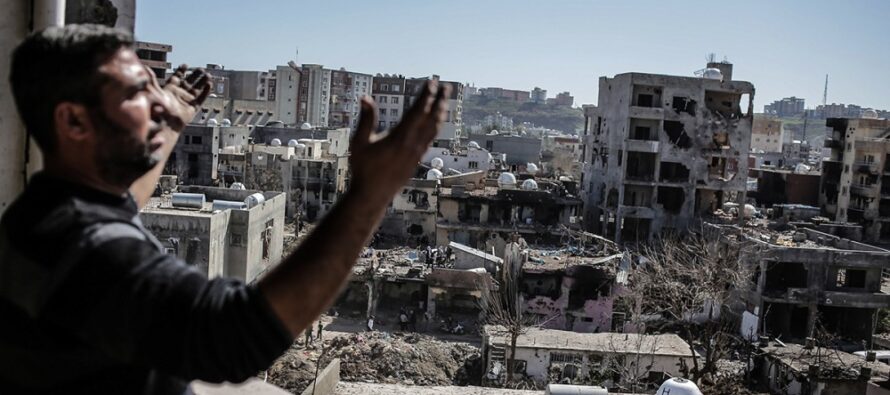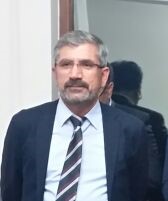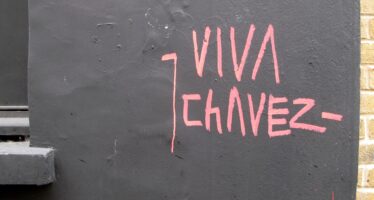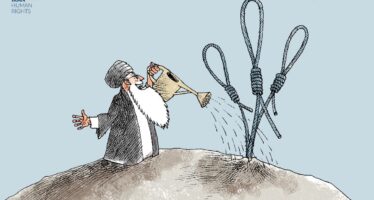Poem in November. In memory of Tahir Elçi & Sergio Finardi

![]()
In memory of Tahir Elçi
(assassinated November 28, 2015 in Diyarbakir, on the banks of the Tigris River, southeastern Turkey)
&
Sergio Finardi
(died, 03 December, 2015, Chicago, USA.)
human rights defenders – insan hakları savunucular – difensori dei diritti umani
Tahir Elçi

Tahir Elçi (1966 – 28 November, 2015), Kurdish Lawyer and Human Rights defender was shot dead at the Sheikh Matar Mosque in Diyarbakir, Northern Kurdistan, whilst calling for an end to violence in south-east Turkey. “The situation is very bad, but I’m afraid that it will be worse,” Elçi said in one of his last interviews. He was appealing for a return to peace talks between the Turkish Government in Ankara and the militant Kurdistan Workers Party (PKK). Tahir Elçi had been detained several times and received death threats after saying the banned PKK should not be regarded as a terrorist organization. Likewise he was critical of some of the actions of the PKK which he felt guaranteed that the conflict could only continue to escalate. While no one has been charged with his murder, the Peoples’ Democratic Party (HDP) called the shooting a “planned assassination,” and his brother, Ahmet Elçi was quoted as saying that his brother was “murdered by the state.” Selahattin Demirtaş, the HDP leader also claimed in his interview that according to their investigators, the bullet which killed Tahir Elçi was fired by a Turkish police officer. By the day of his funeral, “a police officer had already tweeted “You are next” to Tahir’s wife, Türkan Elçi…” Amnesty International reported on the 30 November, 2015. Tajir Elci, Human Rights defender, was assassinated in Diyarabakir this week in 2015.
Sergio Finardi

Sergio Finardi (1950 – 2015), died on the 2nd of December, 2015 in Chicago – where he had lived for many years – the investigative journalist and researcher passed away following a short illness.
Sergio was the founder of TransArms, author of numerous articles and essays with specific focus on the concern of the arms trade, of which he had become one of the world’s leading experts. Born in Cremona, northern Italy, in 1950, he grew up at the height of the student protests. He graduated in Milan with a thesis on Northern European social democracy. Thanks to a scholarship from Stockholm University he studied the historical-political experience of Swedish socialism which he then described in the book ‘The Swedish New Deal’ (1982). Close to the working class and the labour movement, he joined the PCI (Partito Comunista Italiano) and collaborated with CESPI, the Centre for State Reform of Rome, collaborating with the magazines “Rinascita” and “Laboratorio Politico”.
He moved to the United Starss in 1994, where he became a founder and tireless advocate of TransArms, an independent research center into the arms trade and defense logistics, as well as a consultant for the United Nations and Amnesty International, contributing important research to a series of AI’s reports, from 2005 to his death.
Conflicts he investigated extended from eastern Congo and Rwanda (2005), Darfur (2007), Israel and the Gaza Strip (2009), Yemen and Somalia (2010), Iraq, Libya and Syria, as well as the network cover that upheld the “secret flights” in “extraordinary renditions” (2006); this same research was often used to write leading articles published in the left-wing Italian newspaper ‘il manifesto’.
Poem in November
i would go away:
i would go away from the hurt of her
i would go away from the loss
i would go away from the dreams
spent like smoke
i would go away,
i would go away from this war
where nobody wins
i would get away from this peace
filled with corpses
i would go away,
i would go away on my own
i would go away singly and bury my dreams
like dead children in a field
i would go away in our multitudes
grieving this lonely man i know
with his life in bandages,
i would go away,
i would go away with a song and a prayer
for a life not worth living,
a death unredeemed
and these bones trapped in between.
i would go away from this city
and these towns and their streets
and these grim faced pedestrians
with neither sorrow nor joy.
i would leave all ghosts and all gods
with their shrines and altars
with their priests and their doctors
and their maps that lead nowhere,
i would go away and rest in a house
where the heart stops aching
and the wound heals,
where each small sparrow is fed
and hunger is a myth
and the nightmare has awoken
and the rain falls only in surprise.
i would go away
i would be gone.
i would go away
and stay away, far away, as if
i had never been here
never been born, never grown, never grown old
never got sick and never weary,
i would go away
i would get the fuck out of here,
i would leave it all behind
all the pain of it, the simple suffering of it,
felt and unfelt,
the darkness at daybreak
the hospitals and endless funerals
the doorways with their drunken departures
their coming and going with no return,
the shopkeepers and tinkers with their stories
the girls in their lust and their longing
the boys with their secret pain
the windows opening wide with false promises
i would go away,
away from it all
once and for ever.
i would slip out the door unnoticed
i would go out the back when the room
is filled with talk and cigarette smoke
i would leave before dawn with
the household still asleep
i would escape like a prisoner
through tunnels carved in a mind
used like a punch-bag for too long,
i would go underground
like a town under siege
or a country road filled with refugees
i would leave,
and glad so and glad to be gone
with or without this song
or a prayer
or anyone to miss me
or anyone to grieve me,
i would go away
i would leave,
i would slip past the sentries
beneath the barbed wire
beyond books and wars
and our lost revolution,
just past this catastrophe now turning the corner
i would go away
i would leave
i would be gone,
like a sister buried at sea
(like all of the desaparecidos)
like a brother beaten in a cell
like a widow or her dead husband
like a comrade shot in a Bolivian hut
or a heretic burned at the stake
like a stone-dead pop-star falling from the sky
i’d be gone
for once and for all.
i’d leave wistfully or sadly
or in anger
banging the door
or swearing at the postman or the neighbours
or these prison warders who guard my cell day and night,
i’d go
simply and without remorse
i’d leave
do you hear me?
i would go
i would steal away
i’d be gone,
as if a bible rested beneath my head
and with your picture on my breast,
i would go, i would disappear,
now and forever,
one more voice mutilated,
another one unrepentant,
a third, tender in their unnamed skeleton
like all bodies left on the battlefield,
like this then, i’d go,
i’d hit the road
once, now, in an instant and for all time
even if time turned backwards
and all the dead came out of the ground
i’d stay gone
for i would have left
once and for all
left all the hurt and the heartbreak
the aching and the longing
the sorrow and the ecstasy, i’d be gone
never to return
never to darken your door again
never to hear your whisper
tearing my soul from its sleep
tearing the heart from its chest
tearing this body in shreds
i would go away
i would disappear
if only for the simple sake of it
if only for the hell of it
if only to drink this cup to its dregs
if only to bring freedom to the house of a slave
if only to heal all the grief in the world
if only to bury all gods in their woeful complexity
if only to free the politician from their lies
the banker from his profit
the righteous from their sorrow
all lovers, from their loss
i would flee this house
i would go
i would go away
i would leave
i would never be seen again
never heard from, never loved, never cared for
never held, never touched, never beaten,
mocked, shamed, humiliated
never broken,
i would go away
i would escape
i would cease to exist, endure, suffer,
all the angels in heaven would know i’m gone
the small dog would cease missing me
in the morning
the small birds would fly away
because
i would have gone
i would have left,
i would abandon this dead-end called desolation
this country without a flag, this calamity,
its government and hangmen, these casualties,
our proletariat, all this destitution
gone, all gone,
then i would go away again
i would leave
just to be certain, just to be without doubt,
only now to be neither master nor slave
In this hell, in our unwritten history, here, at this conjuncture,
this contradiction among the workers,
on this street of the sniper, in this hospital
for the sick,
in this place where we are all dying
and that then
would be the first day and the first evening
the light separated from darkness,
like day from night
and i would look over all the loss
and the love and the hardship of it all,
the friends dying on the floor
these comrades shot on the street
the ones dying of despair
the others of desperation,
the helplessness of children
the cruelty of these young men marching to war
this silence like our hope on a gallows
all the longing, dreaming, aching and undoing
i would look at it all
and know
because of our dream,
because of my dream, and your dream,
because of our clandestine, collective and democratic dream,
I would know
in my heart and in my soul,
and with this fire of our bellies
and bigger than our broken minds
and more deadly than disease or death or famine
or these lies we tell each other
daily by the hour and by the century
as of history had no destination
and our pain no end:
I would know
it was
all
okay.
And write
you both
this,
in your hour of
dark despair.
séamas carraher
***
Images
Tahir Elçi, the former President of the Diyarbakir Bar Association, 19 October, 2015
By Mahmut Bozarslan (VOA) [Public domain], via Wikimedia Commons
Journalist Sergio Finardi
http://www.grassrootspeace.org/iso_antiwar_rally_03july05.html
Related Articles
US Intervention Will Make Things Worse in Venezuela
![]()
No matter how bad the situation is in Venezuela, a US military response will only make matters worse for the Venezuelans
Troubles On the Way: Border Concerns Raised in Northern Ireland
![]()
With the deadline for negotiations on a british departure from the e.u. fast approaching, the reality of a “no deal” brexit is becoming increasingly likely
Ramin Hossein Panahi, Iranian Kurd, Still on Death Row…?
![]()
Iran Human Rights warns that the execution of the Kurdish political prisoner, Ramin Hossein Panahi, may be carried out in the next few days





